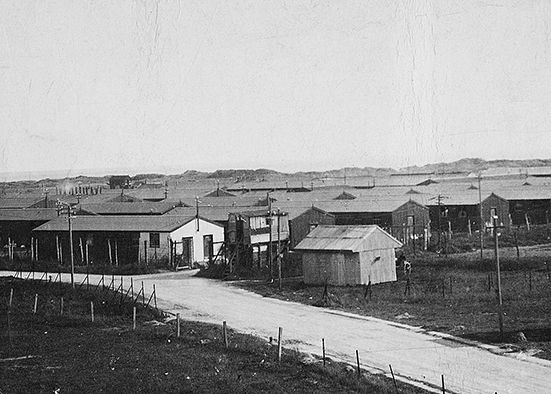An internee’s memories of Ballykinlar feature in book
An internee’s memories of Ballykinlar feature in book
3 January 2024

THE memories of a Cork man who was interned in Ballykinlar Army Camp during the Irish War of Independence are included in a new book which recalls one of the most turbulent periods in Irish history.
Last Voices of the Irish Revolution, written by author and documentary maker Tom Hurley, is a compilation of interviews with people who experienced the War of Independence and subsequent civil war at first hand.
Hurley began his research into the book in 2003, 80 years after the end of the civil war. He wondered if there were many people – civilians and combatants – left who had experienced the years 1919 to 1923, along their prelude and their aftermath.
He spoke to a cross-section of people – Catholic, Protestant, Unionist and Nationalist – who were in their teens or early twenties during the civil war.
The chronological approach he has taken to his book spans fifty years, beginning with the oldest interviewee’s birth in 1899 and ending when the Free State became a republic in 1949.
One of them was Patsy Holmes, born in Cork in 1902 and interned in Ballykinlar Camp in 1921. Patsy spoke of the men he met there, including a priest named Father McLister, from Co Antrim, who used to visit to administer to the internees.
Patsy had vivid memories of gazing at the Mourne Mountains in the distance. He recalled frequent attempts by the internees to dig escape tunnels, their efforts being thwarted by the sandy texture of the soil.
Patsy witnessed the deaths of three internees in the camp. When he and his comrades were released in December 1921 after the treaty being signed, their train heading for Dublin was welcomed into Newcastle by well-wishers, but attacked by loyalists at Katesbridge and Banbridge.
Norman Douglas, who was born in 1909 and grew up in East Belfast, recalled his early life, going school, attending Twelfth of July parades, his brother’s service in World War One, the Black and Tans, curfews and the B-Specials.
He also recalled a Catholic neighbour taking him to the pictures, Unionist leader James Craig being present at the opening of the Northern Ireland Parliament, tramcars, death of a soldier, the establishment of the RUC, his honeymoon in Dublin and his hopes for the future.
Another interviewee was John Parkinson, born in 1907, who grew up on the Grosvenor Road in Belfast. He recounted his memories of seeing the ill-fated Titanic liner on three occasions, his father’s membership of the UVF and being present at
the unveiling of the Titanic Memorial in 1920.
He also saw James Craig and Irish republican leader Eamon de Valera and remembered tramcar attacks, rioting, a neighbour being shot, the burning down of Belfast Boys’ Model School, Unionist reaction to the death of Michael Collins and becoming a teacher.
Also interviewed was Anthony McGinley, born in Donegal in 1905. During World War One his family moved to Strabane to take over the running of a public house. When in 1915 the poet Thomas Kettle of the Royal Dublin Fusiliers visited the town to encourage enlistment into the British army, Anthony’s father challenged him as to why Irishmen should fight for England.
There are a total of 20 interviews in the book and they provide a unique and fascinating account of the revolutionary period and its aftermath.
Last Voices of the Irish Revolution is available in bookshops and online. It is published by Gill Books.


